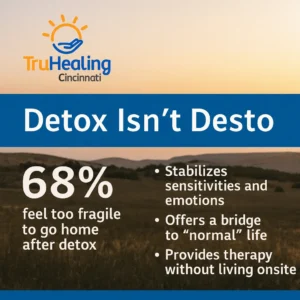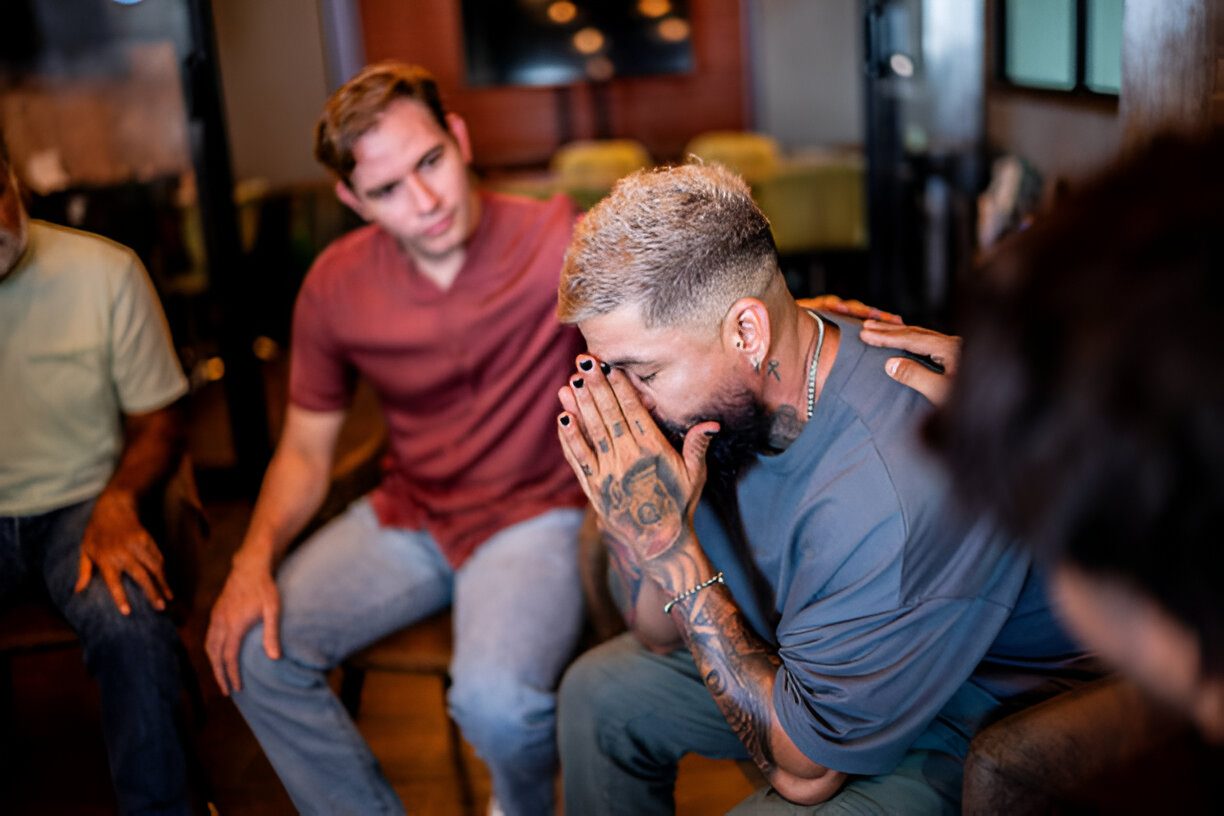Your body might be detoxed, but your mind is still reeling.
You got through withdrawal. You’re technically “clean.” But now what? The fog hasn’t lifted. Your emotions are all over the place. And going back home feels less like relief and more like exposure—like stepping out into the cold without a coat.
If you’re feeling that tension, that dread, that “I should be okay by now but I’m not” ache… you’re not broken. You’re in the in-between. This is where a Partial Hospitalization Program (PHP) steps in.
PHP isn’t a detour. It’s a bridge. And for many people in early recovery, it’s the most important one they’ll cross.
What is PHP, and what makes it different?
Let’s break it down simply.
A Partial Hospitalization Program (PHP) is a structured form of addiction treatment where you receive intensive clinical support—without having to live at a facility full-time. You come during the day for therapy, group sessions, and medical check-ins, then return home or to sober housing at night.
It’s designed for the moment after detox, when your body is technically sober but your mind is still fragile. You’re not in withdrawal anymore, but you’re not yet stable enough to go it alone.
At TruHealing Cincinnati, our PHP gives you that middle space. It’s not just about staying sober—it’s about helping you become emotionally, mentally, and relationally strong enough to want to stay sober.
Why isn’t detox enough?
Detox stabilizes your body. That’s all it’s meant to do. It clears the substances out of your system and helps manage withdrawal symptoms. But it doesn’t teach you how to live differently. It doesn’t address the emotional pain that may have driven your use in the first place.
That’s where so many people fall. They finish detox and think, “I made it!” But within days, they’re overwhelmed. They’re triggered. They’re lonely. They’re back in the same environment that hurt them, and they haven’t been given the tools to navigate it yet.
Leaving detox without follow-up care is like walking out of surgery and skipping physical therapy. You might survive—but you won’t heal.
Why does early recovery feel so lonely?
No one talks about this part enough.
When you get sober, especially after detox, it’s common to feel stripped bare. The substance that used to numb your pain, quiet your thoughts, or help you fit in is suddenly gone. But your pain? Still there. Your fears? Still there. And the people around you—if they’re still around—might not know how to show up for this version of you.
- Old friends might still be using.
- Family might be supportive—but awkward or unsure.
- You may have lost relationships in active addiction.
- You might not trust yourself yet.
PHP can’t magically fix loneliness. But it can surround you with other people who are in the same boat—people who get it. In group therapy, you’re allowed to speak the unspeakable. You’re allowed to not be okay.
That’s powerful.

What do you actually do in PHP?
A lot of people imagine PHP like a hospital or classroom setting. In reality, it feels more like a rhythm—one that holds you when everything inside feels unstable.
Here’s what a typical day in PHP might look like at TruHealing Cincinnati:
- Morning Check-In: A warm, structured welcome to the day. You’ll talk briefly about how you’re doing, any triggers or struggles from the night before, and what you need today.
- Therapeutic Groups: These sessions help you build practical skills around boundaries, emotional regulation, communication, and relapse prevention. You’ll talk, yes—but you’ll also learn.
- Individual Therapy: You’ll meet with a licensed therapist one-on-one to go deeper into your history, mental health, trauma, family dynamics, or anything that’s coming up.
- Psychoeducation: These are sessions that teach you the why behind your experiences. You’ll learn about the brain in recovery, the impact of trauma, and how your nervous system is wired.
- Medication Management (if needed): If part of your recovery includes medication, you’ll have support to manage it safely.
- Community & Connection: Whether it’s structured or informal, there’s time to build connection. PHP clients often describe these bonds as the first friendships they’ve had that didn’t revolve around using.
Treatment usually runs five days a week, about 4–6 hours per day. You’ll return to your home or sober living environment each evening with tools you didn’t have that morning.
What happens when PHP ends?
Good treatment doesn’t drop you. It transitions with you.
After PHP, most people step down into Intensive Outpatient (IOP). That means fewer hours per week, more flexibility for work or school, and continued support.
You’re not kicked out of the nest. You’re given the confidence—and the scaffolding—to fly on your own timeline.
Sometimes people repeat PHP or bounce between levels of care. That’s normal. Healing isn’t linear. What matters most is that the path forward still exists, and you don’t have to figure it out alone.
What makes PHP in Cincinnati unique?
Our region carries its own story. The opioid crisis hit hard here. Resources can feel scattered. But healing is happening—and we’re part of that.
At TruHealing Cincinnati, our PHP was built with this community in mind. We know what it means to fight for your life in a city that sometimes doesn’t know how to talk about addiction. We also know what it looks like when people find support, connection, and a place to begin again.
Not from right here? You might consider our extended support network:
- Looking for PHP in Lexington, Kentucky? We serve that area, too.
- Closer to Louisville, KY? Let’s talk about what support looks like near you.
Healing isn’t just a personal journey. It’s a local one, too.
Who is PHP actually for?
PHP isn’t just for people who “can’t function.” It’s for people who want to function differently.
Ask yourself:
- Did you just finish detox and feel too raw to return home?
- Are you struggling with cravings, flashbacks, or emotional swings?
- Do you feel like your sobriety is hanging by a thread?
- Are you craving support, but can’t commit to full residential treatment?
If any of that resonates, PHP could be your middle space. It’s not about being “sick enough” to qualify. It’s about being ready enough to want help—and honest enough to know you’re not ready to do it alone.
What if I already went to detox and feel like I’m slipping?
It happens.
Some people leave detox with the best intentions and still start to spiral. That doesn’t mean you failed. It means you didn’t get the level of support you needed yet.
PHP is still an option. You don’t have to start over. You don’t have to justify why you didn’t make it on your own. At TruHealing, we expect the middle to be messy—and we’re prepared for it.
What if I’m scared to commit?
That’s okay. You don’t have to be “all in” to take the first step. You just have to be curious enough to ask.
Some people visit for an assessment and leave feeling like they finally exhaled. Others need a few conversations before they’re ready to begin. We’re not in a rush to move you through a system. We want you to feel safe enough to heal.
You don’t have to white-knuckle this part.
Early recovery can feel hollow. And PHP can feel like overkill—until you start, and realize how much you needed it.
If you’re reading this because you feel like you’re not ready to go home yet… you probably aren’t. That’s not weakness. That’s awareness.
And that might be the strongest, most sober thing you’ve felt yet.
Ready to take the next step?
Call (888) 643-9118 to learn more about our PHP services in Cincinnati, Ohio. We’ll meet you where you are—not where you think you should be.

